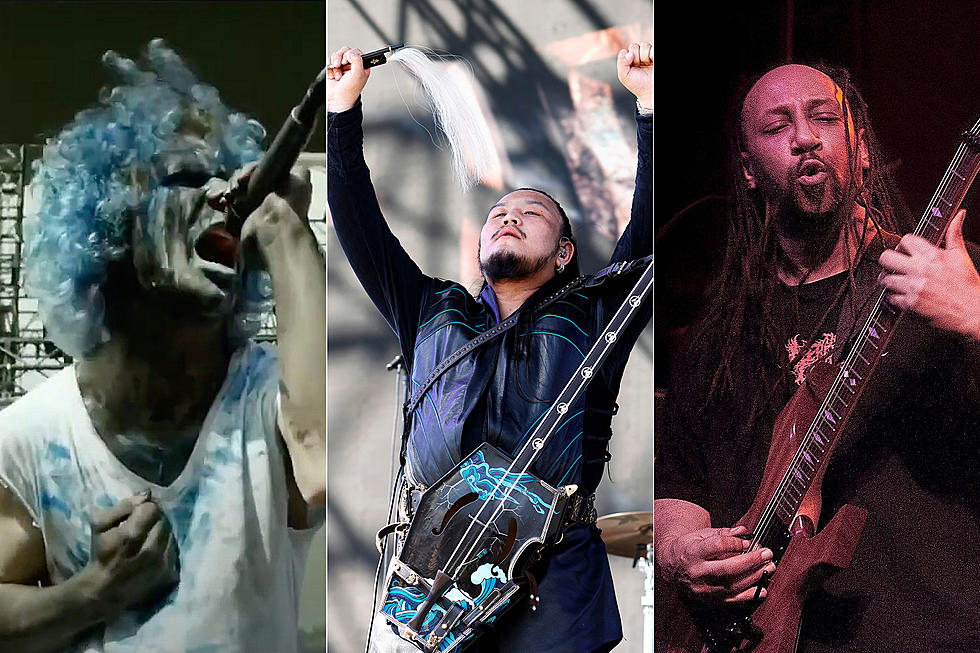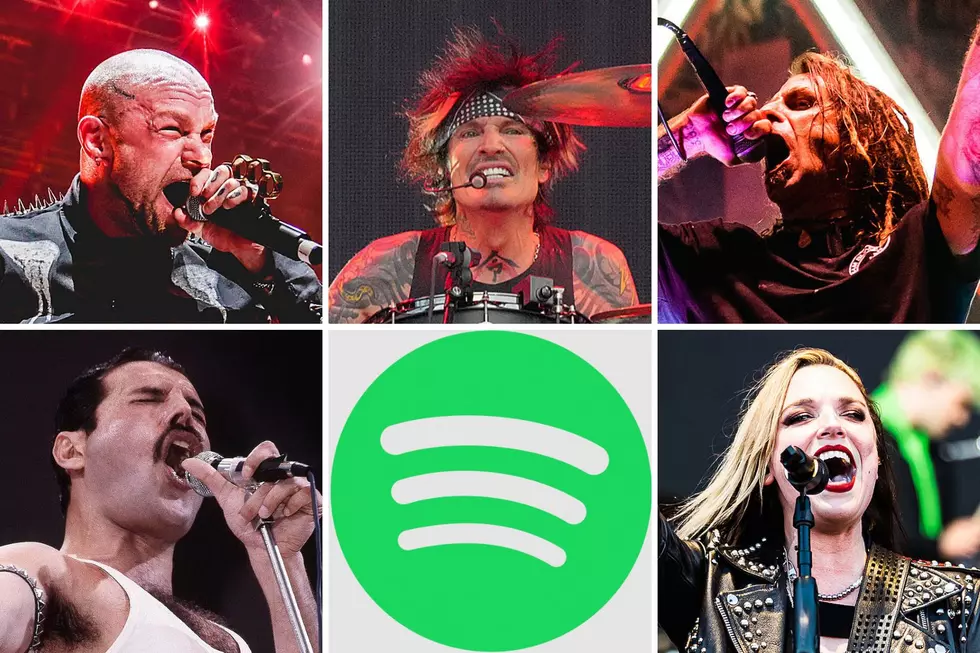
Jonas Renkse: Katatonia’s Hiatus Made Us Miss the Music Business
Katatonia's Jonas Renkse was the latest guest on Full Metal Jackie's weekend radio program. This year, the melancholic Swedish veterans returned from a brief hiatus with their 11th studio album, City Burials.
The singer discussed what benefits the hiatus held as well as Katatonia's constant state of evolution and how each members appreciates outside influences from beyond metal's scope.
Check out the full chat below.
Prior to making this record, the band went on hiatus. What did you come to understand about Katatonia that isn't so obvious when you're actively in the midst of it?
It was good for us to get some space. We're a band and we tour a lot. When you're touring a lot you miss your family and your friends back home. So, this was part of why we decided to take a little break.
But we also learned that by coming back to the business, we all had missed it very much, so that's why we're here again. I think we all learned a lesson that even though it can be rough to go away all the time, it's also something that we have within us that we need to do when we have the chance to do it.
There's a tradition of you and Mikael from Opeth getting together to preview each other's new albums. What made listening to City Burials together especially memorable?
We had a nice dinner and then we had a couple of listens through the album. And it's always nice to see Michael's reaction because he keeps a stone face when listening the first time. So, you can't really see if he likes something or if he dislikes something. He doesn't show it.
But the next time — we do always two listens — and on the next listen we had some wine and stuff and then he started talking about the stuff that he liked. It's always very funny. It's just for fun — it's not a competition or something that we do. We're good friends and we like each other's music. We're always supportive of whenever one of our bands has a new record. It's become a tradition and it's something that we want to keep up just because it's fun.
Katatonia, "Behind the Blood"
Over the course of your career, Katatonia have continuously evolved by incorporating a broad range of musical styles and influences. What makes that creative journey exhilarating and maybe a little scary?
It's a very exciting journey because we're all music fans in this band and we do like a lot of different styles of music. We always talk about music whenever we see each other and not necessarily metal music because that's something that we already have in common.
We talk about stuff that we have been listening to if someone found a new exciting band or artist. We try to just go through what makes it interesting and stuff like that. That's an ongoing journey and we're very open-minded I would say. That's why I think we can keep our music pretty broad, at least in the frame of what we are doing.
I'm not sure it's very scary. Whenever you do a new album, especially starting off, the writing for a new album is always a bit tense because you want to make sure that you still have everything going, that you have everything — the will to do it and the tools to make it happen. Maybe that's the scary part, but once you're over that first little moment of nervousness, then it's just a very exciting journey ahead.
Katatonia tend to be diametrically influenced by the preceding album to make creative twists and turns. How is City Burials affected by the deluxe release and anniversary tour of Night Is the New Day, which was actually first released 10 years earlier?
Whenever we start writing for a new album it's a bit of a slow process to get started, but of course we do feed off what we have done before because we have a style that we are very comfortable with. Sometimes to get started with the writing of an album it can be a good thing to listen to what we have done in the past. By touring for the Night Is the New Day record was a good thing because we had to revisit what we had done earlier, we could spot a few mistakes maybe in the production process and we could also get inspired by some of the stuff.
For me personally, when I listened through the album prior to going on this tour and prior to rehearsing for it because I wanted to get familiar with the songs again and some of the stuff that I had written for that album, I was kind of baffled. It's not something that I would write today, but I thought it sounded very good. So, that's very inspirational to get a glimpse of what you've done in the past, ideas that you could pursue back then but maybe those ideas wouldn't come to you naturally today because you're a different person and a different kind of musician than you were 10 years ago. That's very exciting.
Katatonia, "Lacquer"
You and Anders Nyström have been the core of Katatonia since the beginning. What's the single most important connection that's kept you bonded together all this time?
I would say apart from the friendship, we definitely have a very similar taste in a lot of stuff ranging from music to lyrics to artwork. Everything that's an expression within this band I think that we have created together and we have never really doubted the other person's decisions or visions.
I never really had to say to Anders, "Do you like this?" because I know if I present something to him he will find something in it that he likes because it's made by me and it's also the other way around. We never really fight about anything that's connected with Katatonia because we've had this similar vision for so long and it's only getting tighter if anything.
Thanks to Jonas Renkse for the interview. Get your copy of Katatonia's 'City Burials' album here and follow the band on Facebook, Twitter and Instagram. Find out where you can hear Full Metal Jackie's weekend radio show here.
See Katatonia in 2020's Best Metal Songs (So Far)
More From Loudwire









